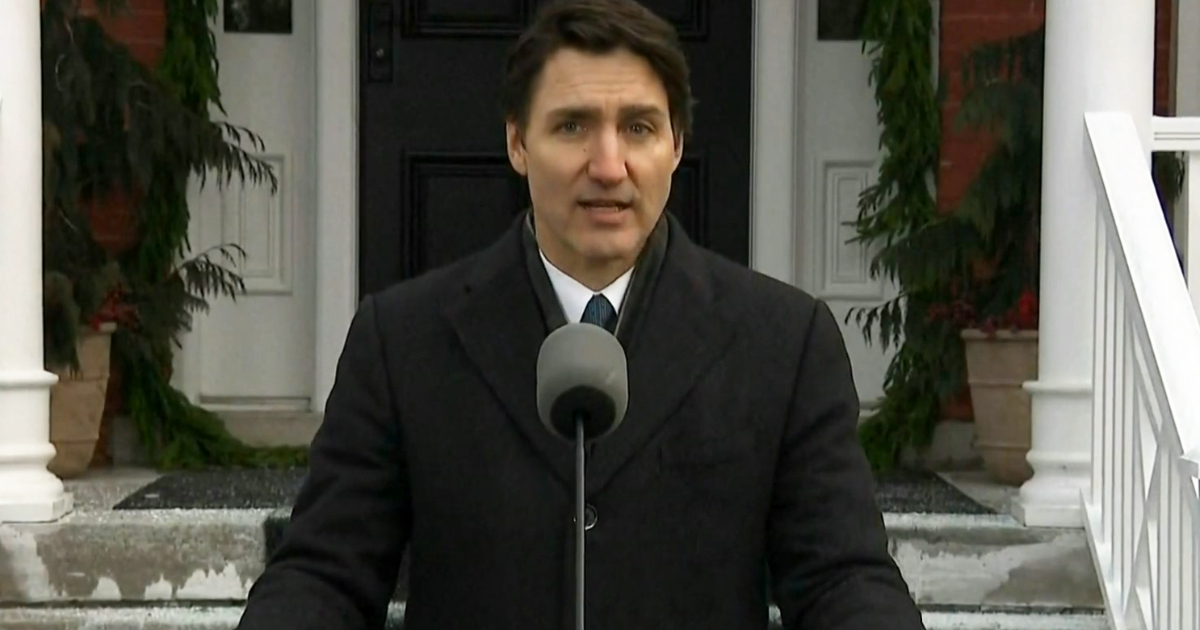
Related videos:
Canadian Prime Minister Justin Trudeau may announce his resignation in the coming hours, according to major newspapers in the country, as reported by the British publication The Guardian on Monday.
Media outlets such as The Globe and Mail and the Toronto Star cited sources close to the government stating that Trudeau, 53, is prepared to step down as leader of the Liberal Party following a series of crises that have undermined his support both within and outside the party.
Trudeau, who became the Liberal leader in 2013 and has served as prime minister since 2015, is facing his toughest political moment.
Record inflation, a severe real estate crisis, rising food prices, and voter fatigue have caused his popularity to plummet.
According to recent surveys, liberals have just 16% support, the lowest level in over a century, while conservatives comfortably lead the electoral preferences.
The leadership crisis intensified at the end of 2024 when nearly two dozen liberal MPs publicly called for Trudeau's resignation in an open letter.
Discontent within the party reached its most critical point with the resignation of Chrystia Freeland, the deputy and a key figure during his administration, who left her position with harsh criticism of the Prime Minister's lack of vision in addressing economic and geopolitical challenges.
Freeland, known for her role in renegotiating the North American Free Trade Agreement, openly questioned the government's ability to confront the economic nationalism of the United States and warned about the potential consequences of the Trump administration's threat of new tariffs.
Freeland's departure and the collapse of the coalition with the New Democratic Party (NDP), which had allowed the Liberals to remain in power, left Trudeau in a vulnerable position.
Even his attempts to improve relations with the United States, such as his visit to Florida to meet with former President Trump, ended in public humiliation, with Trump referring to Trudeau as the "governor" of Canada and downplaying his leadership.
Analysts suggest that Trudeau's resignation could lead to early elections in the spring, although it is uncertain whether he will remain as interim prime minister while the Liberals select a new leader.
Trudeau, son of the historic Prime Minister Pierre Trudeau, came to power as a symbol of stability and progressivism, but his legacy now appears to be at risk of being overshadowed by a management marked by economic and political crisis.
The conservative leader, Pierre Poilievre, has already called for immediate elections, stating that the government is "losing control." A video of his remarks about Cuba can be viewed at the end of this note.
Potential impact of the crisis in Canada on relations with Cuba, the leading source of tourists to the Island
The potential resignation of Trudeau and the impact of the political crisis in Canada could have significant consequences for the bilateral relationship between the two countries, particularly in the tourism sector, as Canada is the largest source of tourists to Cuba.
In the current context, Canadian tourism represents a fundamental pillar of the Cuban economy, contributing thousands of visitors each year. However, a potential transition in Canadian leadership could generate uncertainty regarding travel policies, public perception, and the diplomatic relationship between Ottawa and Havana.
Canadian tourism in Cuba: a pillar at risk
Canadian tourism, historically stable, has faced challenges in recent years due to factors such as traffic accidents affecting tourists, the decline in the quality of tourism services on the Island, and criticisms in Canadian media regarding the lack of safety and human rights in Cuba.
For example, a tragic accident that occurred in June 2024 left 26 Canadian tourists injured, prompting criticism regarding transportation conditions on the Island.
Additionally, a recent report from a Canadian agency indicated that Canadian tourists are becoming increasingly demanding regarding tourist destinations, seeking quality and safety in their experiences. This poses additional challenges for Cuba, whose tourism infrastructure faces limitations due to the economic crisis.
Diplomatic Relations: Ongoing Tensions
Canada's foreign policy towards Cuba under Trudeau's leadership has been characterized by a rather moderate approach.
However, since 2021, several Canadian senators, such as Conservative Leo Housakos, have expressed critical views toward the Cuban regime, denouncing repression, human rights violations, and the imprisonment of activists like Saily González.
These criticisms intensified following the protests of July 11, 2021, when some Canadian lawmakers urged their government to take stronger action against Havana.
Future political scenario
The potential departure of Trudeau could further complicate relations. The conservative leader, Pierre Poilievre, has taken a more critical stance toward authoritarian governments, which could translate into a tougher approach toward Cuba, particularly concerning human rights issues.
This could also impact tourism flows, with potential restrictions or messaging that discourages travel to the Island. On the other hand, a prolonged leadership vacuum in Canada could create uncertainty in key economic sectors, including tourism.
The growth of the community of exiled Cubans in Canada, the increase in their activism for the freedom and rights of their compatriots on the Island, as well as their greater presence in public space and Canadian civil society, are factors to consider in future scenarios.
In summary, the political crisis in Canada could have a direct impact on its relationship with Cuba, affecting both tourism and bilateral cooperation amid a backdrop of increasing international pressure on the Cuban regime.
Filed under: